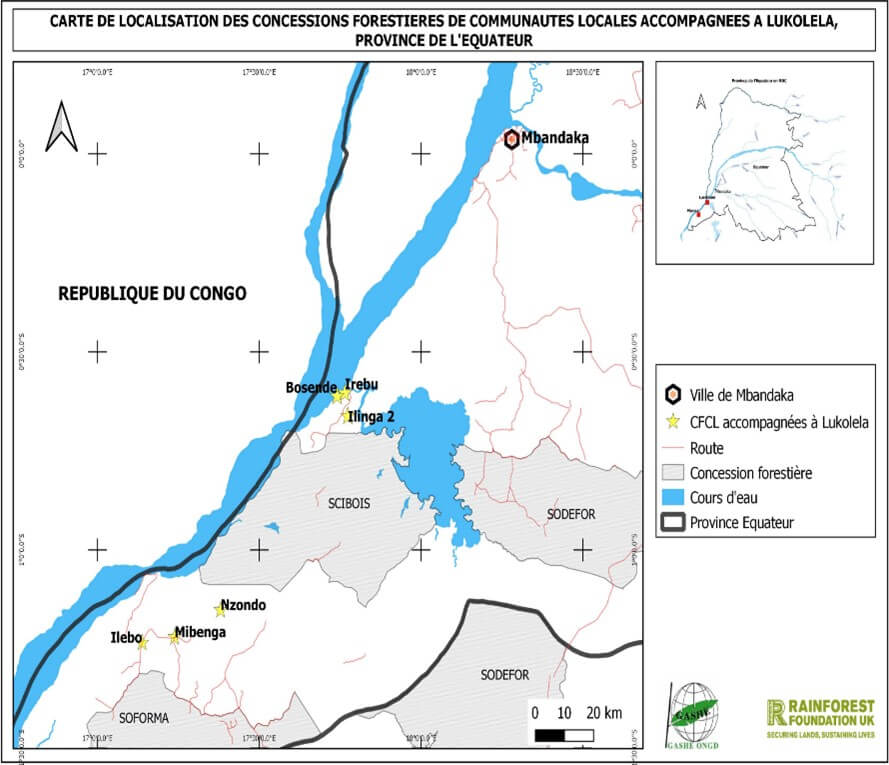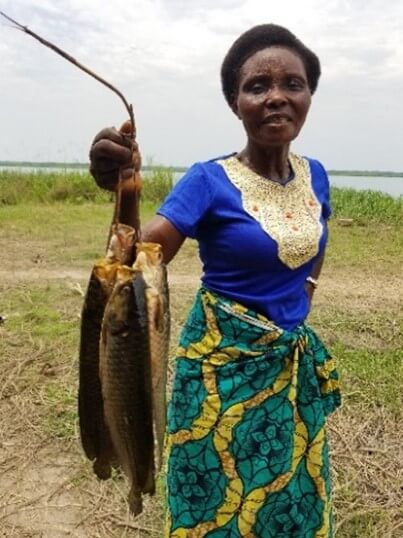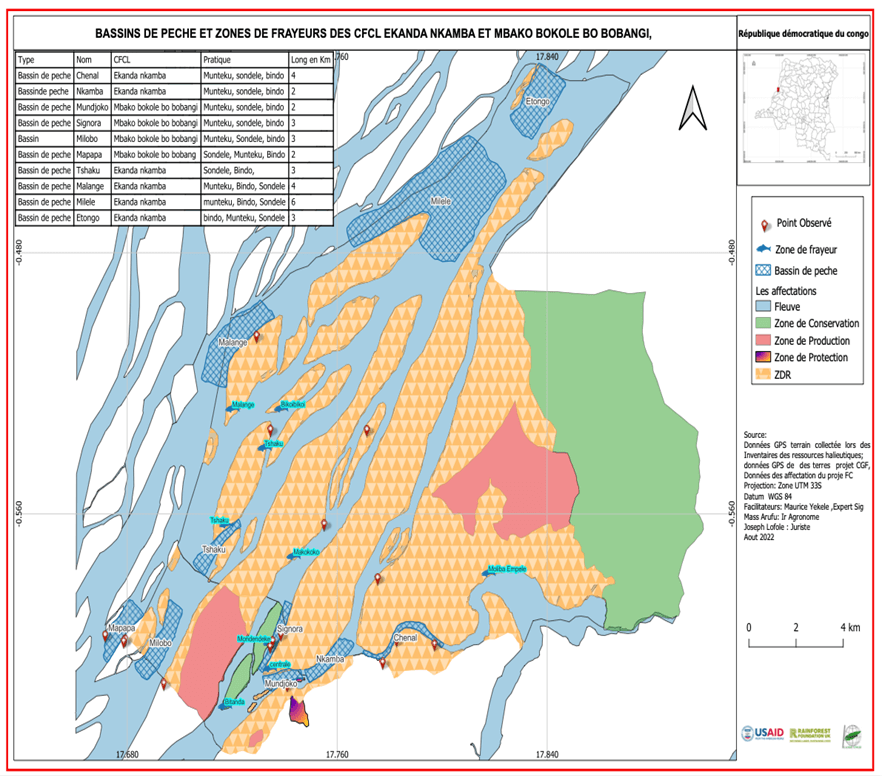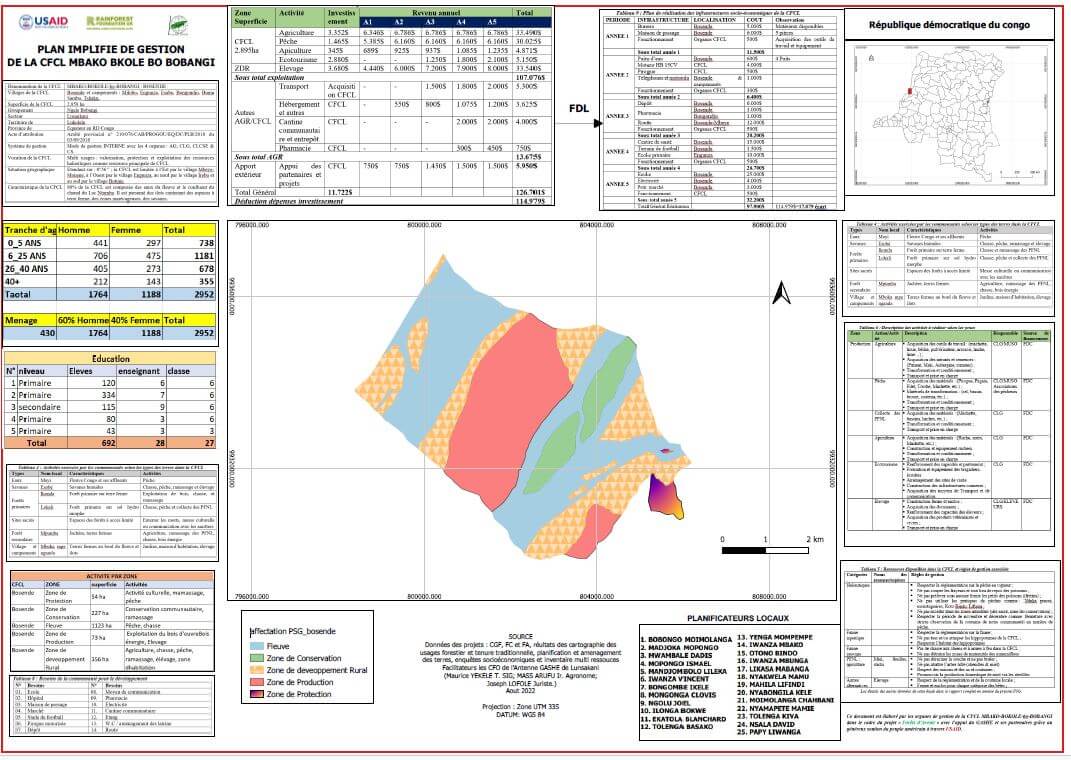Reviving the fishing industry: boosting fishing and profits through CFCL compliance in DRC’s Equateur province
23 July 2025
This story is the fourth in a five-part Forests for the Future impact series on how community forests in the DRC are enabling communities to drive their own development and protect climate critical forests.
Bosende is a riverside community in Lusankani territory, Equateur province of the Democratic Republic of the Congo (DRC), where 80% of its community forest concession is made up of the Congo River and the confluence of the Ntumba Lake channel. The landscape is dotted with islands of dry land, swamps and savannahs. For generations, families in this rural area have depended on the Congo River’s rich fish stocks for food and income, making it a vital source of subsistence. However, in recent years, fish catches and river resources dwindled, ecosystems began to decline and desperation crept in.
But thanks to the Forests for the Future project, that story is changing.
In 2018, Bosende took a transformative step by securing its customary land by establishing a Community Forest Concession (CFCL) and developing an inclusive and sustainable management plan. Based on this plan, community members have been working on ways of developing a self-reliant economy and improving their income, at the same time as sustainably and responsibly managing their fishing practices.

Map showing the location of the supported CFCLs in Equateur province in DRC.
Through the Forests for the Future project, local NGO GASHE, with support from RFUK, supported the community to revitalise the ancestral fishing practices that had once kept their rivers healthy and productive. Through training and community dialogue, the community members reminded themselves about how to avoid destroying spawning grounds, using small-mesh nets and avoiding harmful practices.
Significantly, the community appointed representatives for monitoring, surveillance and developed a management plan that gave structure and legitimacy to this revival, blending tradition with modern sustainable practices and inclusive internal governance.
The results have been life changing.
By aligning their practices with the river's fishing calendar and rotating use of various basins, fishers are now seeing reliable yields both in and out of season.
With more fish to sell, incomes have risen and more families are once again able to afford essential goods and pay for any household needs without stress.
“When our husbands and children couldn't fish enough, we thought the ancestors had cursed us, but thanks to GASHE, we realised that we were the ones who had been depleting our resources. When we decided to abandon bad practices, fish came back, and we now have enough money to feed our children well”, says Maman Fannie, a community member of Bosende.

‘I bought these four fish for 2,000Fc, when a short while ago they cost 4,000Fc. I will be able to feed my family well. I give thanks to the Local Community Forestry Concession management rules’, said Bosende community member Mrs Mnzuka.
Bosende shows how community-led resource management, blending traditional knowledge with modern support, can revive depleted ecosystems, as seen through the Forests for the Future project, inspiring sustainable development across Equateur and beyond.

Map highlighting key areas identified by communities as vital for fishing, including zones where certain activities were temporarily restricted or prohibited.

The Bosende Simple Management Plan, also available to download here.
Share this:

